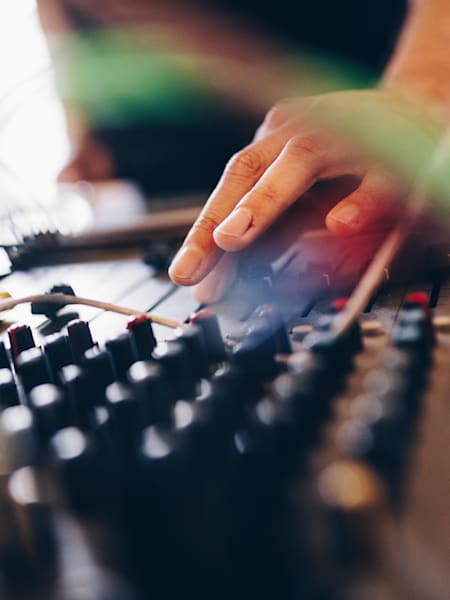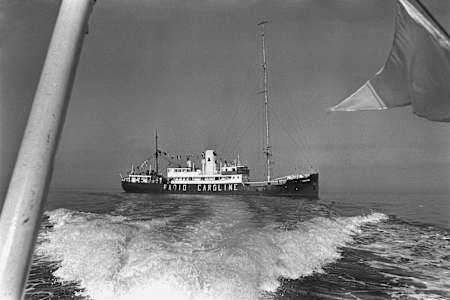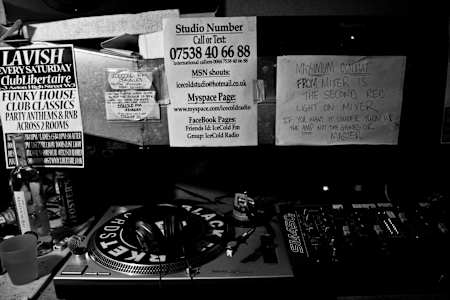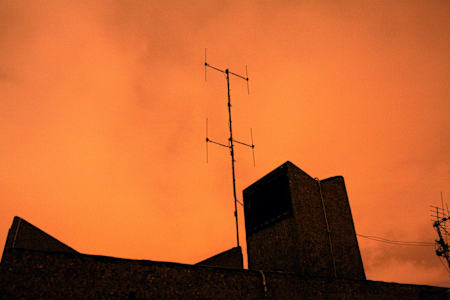Pirate radio stations aren't just a London thing. Over the past 80 years, they've popped up all over the world, from Brussels and Paris to Miami, New York and beyond. Most of them have had one unifying reason for existing – to give voice to something that established legal stations refuse to broadcast.
In the UK and elsewhere, this has almost always been black club music. Indeed, the history of UK pirate radio is a universal story that helps explain the enduring appeal of – and the continuing need for – pirate radio stations everywhere.
1930s
The concept of popular pirate radio began with Radio Luxembourg in the 1930s. The station was already broadcasting legally around Europe from the tiny nation of Luxembourg, but with no commercial radio allowed in the UK thanks to the BBC's monopoly of the airwaves, entrepreneurs decided to use Radio Luxembourg's transmitter – the most powerful privately owned transmitter in the world – to broadcast sponsored programmes to Britain and Ireland, 'pirating' those country's wavelengths. The station had a huge influence on British and Irish youth right up until the 1950s, but its primary purpose was to sell advertising and make a buck.
1960s
With the advent of commercial TV in the UK, Radio Luxembourg's star waned and it was another pirate radio station that ruled the 1960s, setting the template for stations whose main concern was the music they played.
Nightclub owner and music manager Ronan O'Rahilly was frustrated by the hold that major record labels and other organisations had over BBC radio, and decided to take them all on by broadcasting illegally from a boat off the east coast of England. Radio Caroline started transmitting in 1964, and teenagers in the UK and large parts of Western Europe were able to hear modern pop, rock, jazz and soul on their radios for the first time.
It wasn't the first offshore station – there were examples in California in the 1930s, as well as off the coasts of Denmark and Sweden in the 1950s – but Caroline inspired others to drop anchor, such as Radio London, and forced the UK government to draft new legislation – 1967's Marine Offences Act – to ban them. It also inspired the launch of the BBC's new pop station, Radio 1.
1980s
The future of broadcasting on the open waves was all but over when the Marine Offences Act came into force, and pirate radio dwindled until the 1980s, when a new generation decided they weren't being represented on air. Black music stations such as Horizon, Jazz Funk Music, Dread Broadcasting Corporation, LWR and, most famously, Gordon Mac's iconic Kiss FM specialised in soul, reggae, funk and other music absent from UK radio.
Broadcasting from high-rise tower blocks across the country, these stations were involved in a cat-and-mouse game with Department Of Trade And Industry agents, but as these pirates became more and more popular, they invested in new technology that made it harder for the DTI to trace them.
Early 1990s
Pirate radio stations sprang up everywhere in the '90s. Not just in the UK, but in other countries too. FG, Nova and Generations in France; Fire, Wah Gwan and Bashment in New York; Bass FM, Bass Side and Hot in Miami. The severe lack of diversity on UK stations, though, made it a real hotbed for pirates.
At the beginning of the 1990s there were more than 500 illegal stations broadcasting in the UK, with dance and rave stations such as Sunrise, Centreforce and Fantasy joining more established pirates – especially after Radio 1 claimed that acid house and rave culture was going nowhere.
It didn't take long for the government to try and clamp down, though. They offered stations a deal. Go off air and become eligible for one of many new legal radio licenses being created. Kiss FM took the deal, while the government got tough with those remaining.
Late '90s and 2000s
A new, raw, grassroots kind of pirate radio exploded from 1992 onwards. Stations such as Weekend Rush, Kool FM, Pulse and Innocence wanted to represent the streets and promote local scenes. They were chaotic. MCs and DJs hyped over tracks, shows were more like rowdy parties and audience participation was encouraged.
In 1994, Slimzee and Geeneus launched Rinse FM with an aerial stuck to a broom handle. Before it gained legal status in 2010, it had been a pivotal platform for UK garage, grime and dubstep, launching the careers of more artists and DJs than we've got space to list here.
Modern pirate radio has had a heavy influence on popular culture. Artists such as Dizzee Rascal, Wiley and Boy Better Know, plus a whole raft of big name DJs and producers, were given early platforms on pirate radio. The BBC launched 1Xtra in response to stations such as Rinse, and the sound and feel of pirate radio culture can be heard in the music of The Streets, Paul Woolford's Special Request and myriad other artists' music.
The internet has changed the landscape for pirate radio, but the scene lives on with setups still being impounded every year. So keep it locked on.
Want a hit of new music every Friday? Follow our 4pm Finish Spotify playlist
Like Red Bull Music on Facebook and follow us on Twitter at @RedBullUK
Listen to Red Bull Radio for in-depth interviews, exclusive mixes, live broadcasts and more







